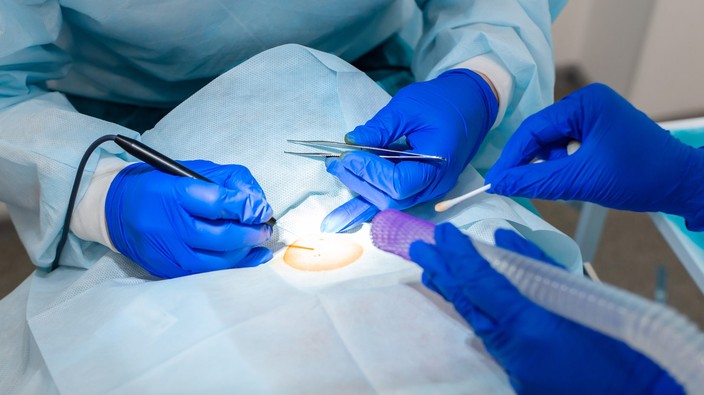is immunotherapy the answer to conquering skin cancer?
it is estimated that one in eight canadians will develop basal cell cancer in their lifetime and one in 20 will experience squamous cell cancer.

non-melanoma skin cancer accounts for around 28 per cent of all new cancer diagnoses in the country, according to the public health agency of canada. getty
almost two-thirds of patients with a common form of skin cancer had their tumours nearly or fully erased after being administered immunotherapy before surgery, according to a pilot study that may lead to changes in the standard of care for millions of people.
while chemotherapy treatment directly attacks cancerous cells, immunotherapy strengthens the immune system and boosts its response to tumours. both forms of treatments have their benefits and drawbacks, but one of the major advantages to immunotherapy is that once the immune system recognizes cancer cells, it can protect against cancer in the long term.
the new research, which was funded by regeneron pharmaceuticals, inc. and sanofi — the makers of the drug cemiplimab — was outlined in the new england journal of medicine and presented at the european society for medical oncology congress 2022 monday. in a multicentre phase ii clinical trial on patients with stage 2-4 cutaneous squamous cell carcinoma (cscc), a team of researchers found that cemiplimab was well-tolerated and achieved a pathologic complete response (pcr) of 50.6 per cent, meaning all tumour cells disappeared in half of the participants in the study.
advertisement
in addition, another 12.7 per cent of participants experienced a major pathological response that resulted in less than 10 per cent of viable tumour being found at surgery.
“these results represent the highest response rate to neoadjuvant anti-pd1 monotherapy in any solid cancer so far and likely are the start of a practice change for how we treat advanced, resectable cutaneous squamous cell carcinoma,” said neil gross, principal investigator and lead author of the study and professor of head and neck surgery at the university of texas md anderson cancer center.
“i’m excited to see how this new treatment approach impacts outcomes, including quality of life, as we continue long-term follow-up.”
non-melanoma skin cancer accounts for around 28 per cent of all new cancer diagnoses in the country, according to the public health agency of canada. around 75 to 80 per cent of these cases originate in the basal cells lining the top layer of the skin and are known as basal cell cancer. the remaining 20 to 25 per cent form in the squamous cells and are known as squamous cell cancer. it is estimated that one in eight canadians will develop basal cell cancer in their lifetime and one in 20 will experience squamous cell cancer. both forms of the disease have a higher five-year survival rate than melanoma, a less common but deadlier form of skin cancer.
advertisement
in the current study, 79 patients from the u.s., australia and europe with operable cscc, were given four doses of neoadjuvant cemiplimab followed by curative-intent surgery, with optional adjuvant radiation therapy. the majority of patients were male, with a median age of 73 and 87.3 per cent were white (consistent with the incidence of cscc). the head and neck area was the primary site of cancer for over 90 per cent of patients. of the 79 participants, 62 received all four doses of cemiplimab and 70 had surgery.
because most csccs occur in the head and neck (areas subject to high exposure from the sun), they can quickly affect the eyes, ears, nose and mouth if they are aggressive. this means the current standard of care (surgery followed by radiation) can be disfiguring and involve the loss of function. researchers found that using immunotherapy prior to surgery enabled the use of less-invasive surgery that preserved function in some cases.
before the end of the study, 14 patients experienced grade three or higher adverse events, the most common being fatigue (30.4 per cent), rash (13.9 per cent), diarrhea (13.9 per cent) and nausea (13.9 per cent). four patients died, with one death (exacerbated heart failure) considered to be related to the treatment.
advertisement
in the future, the team hopes to discover the optimal number of doses of cemiplimab that are required prior to surgery, which patients will benefit most from the therapy and which can expect to safely avoid surgery or radiation after taking the drug.
“i think where it’s really going to make a huge difference is quality of life,” gross said. “if you can avoid radiation or have a smaller surgery and you can keep your eye, ear or nose, that’s a huge win for people. that’s the excitement of this approach: the chance to make life so much better for our patients in the future.”
dave yasvinski is a writer with healthing.ca
thank you for your support. if you liked this story, please send it to a friend. every share counts.
 3 minute read
3 minute read





